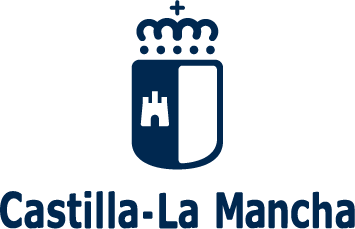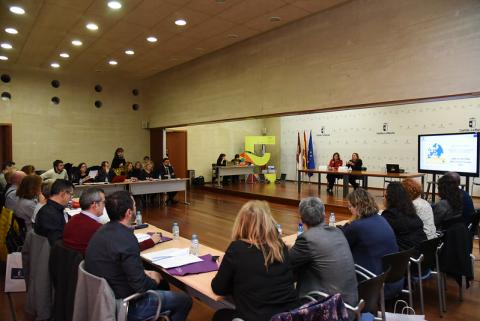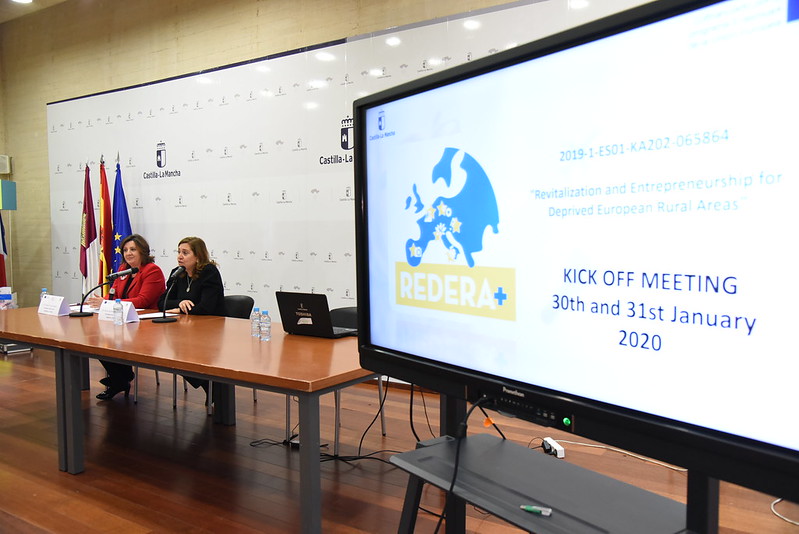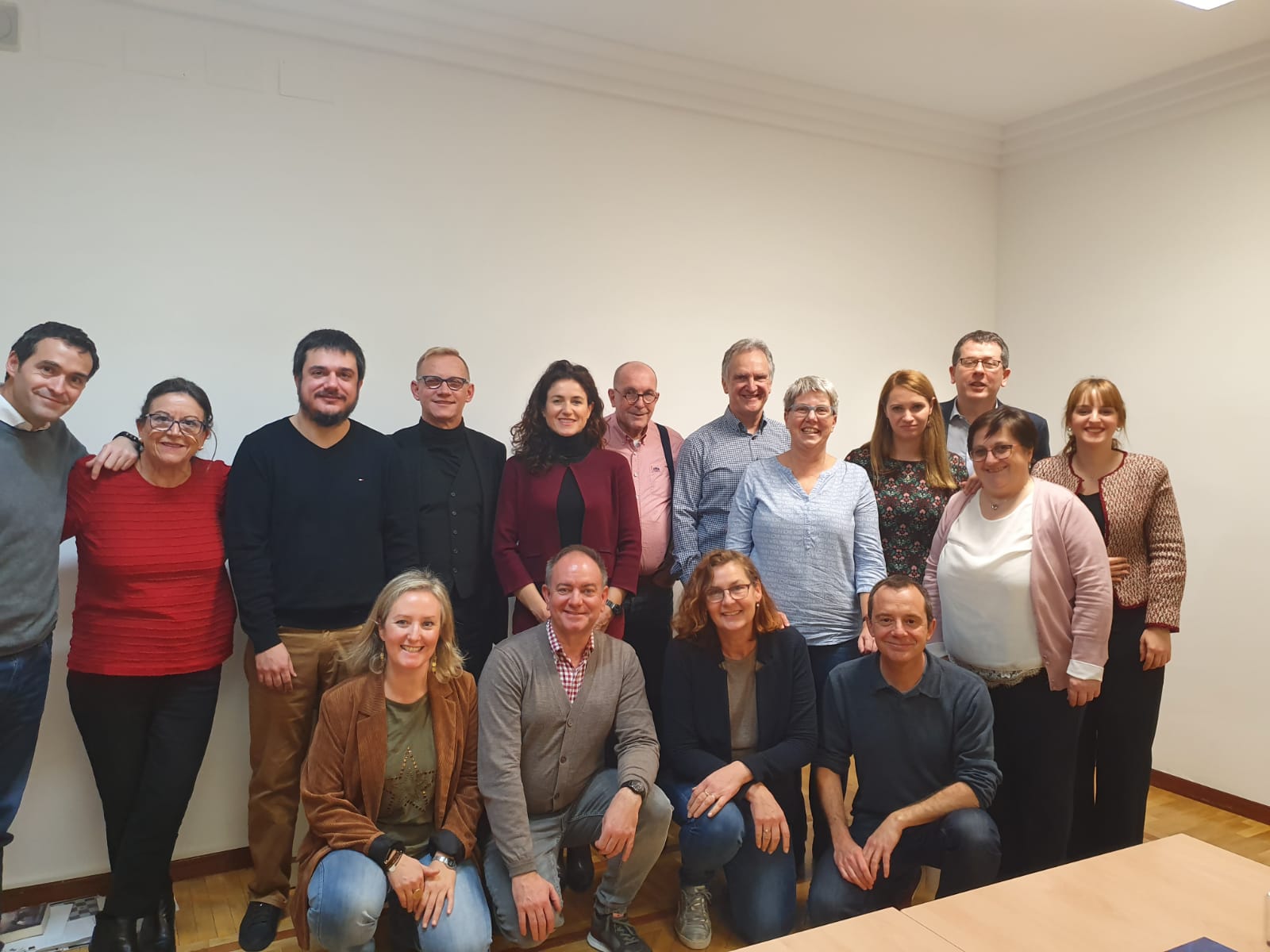The seven partners who make up the REDERA+ project (ABU, Tirantes, NOTUS, Agenzia Piemonte Lavoro, the Provincia Autonoma of Trento, the Osnova Sola Lovrenc na Pohorju school and the Junta de Comunidades of Castilla-La Mancha) held their first meeting in Toledo on January 30th and 31st, 2020.
The Junta de Comunidades of Castilla-La Mancha acts as coordinator for the initiative through the Department of Economy, Business and Employment, and the Department of Education, Culture and Sports. Over two work days, the participants established a series of directives that will guide development of the initiative, and mapped out next steps for the coming months.
The meeting began with a welcome address from Patricia Franco, Minister of Economy, Business and Employment for Castilla-La Mancha, as well as the regional head of the Executive Committee for Education, Rosa Ana Rodríguez.
Franco reminded the group that the goal of this European project is to “create a network for learning that is focused on improving access and efficiency when it comes to vocational training in underpopulated rural areas, in order to strengthen social inclusion; to foster social, economic and environmental sustainability; and to contribute to an established population.”
In her presentation, the Minister highlighted certain actions that are driving her government to fight against depopulation. These include the Integrated Strategy for Territorial Investment (ITI) in which 678 million euros have already been invested to drive the digitalization of the area, the promotion of economic activity and the sustainable use of local resources. The Pact Against Depopulation and the Local Rural Development Law have also been established with an eye on these objectives.
Employment and vocational training in Castilla-La Mancha
Next, the participants had the opportunity to learn more about the regional labor situation thanks to Nuria Berta Chust, Deputy Minister of Employment, Social Dialogue and Occupational Health.
As for Amador Pastor, Deputy Minister of Education, and María Teresa Company, General Director of Education and Vocational Training, they explained the structure of the vocational training system in Castilla-La Mancha, and the strategies guiding their departments in this context.
Subsequently, the General Director of Vocational Training for Employment, Marta Roldán, spoke in depth on the management of ongoing vocational training.
Now fully immersed in the project at hand, Jesús Ramón Asensio, from the General Directorate of Employment Programs for the Government of Castilla-La Mancha, spoke about the results of the Erasmus+ convocation, of which the Redera+ project is a part. He reminded the participants that this initiative must be developed over a period of 24 months, and has funding of 154,940 euros.
The first day came to a close with a review of the objectives at hand, and a work plan that will help to achieve them. This included the dates when future meetings will be held.
The search for best practices
Day two was dedicated entirely to questions related to the organization and execution of the Redera+ project. After sharing the methodology that will be employed to identify best practices, each of the partners presented the local area where they work, and the subject matter they’ve chosen for the seminar they will be organizing.
The ABU educational center will be tackling local development, taking advantage of internal resources, while NOTUS will focus on the collaboration of parties who are interested in providing vocational training. In Piemonte, the seminar will revolve around inclusive work programs in rural areas. Cooperation between governmental business and educational centers is the subject at hand for the meeting coordinated by Tirantes. The opportunities created by FEDER funds, the struggle against depopulation, and education in rural areas will be the main issues in upcoming meetings in Trento, Castilla-La Mancha, and the one organized by Slovenia’s Osnova Sola Lovrenc na Pohorju rural school, respectively.
At these meetings, each partner will present at least two examples of best practices, which will serve to provide applicable knowledge to other rural and underpopulated areas.
The first meeting between partners in the Redera+ project concluded with the presentation of a communications plan by Palmira Jerez, María Jesús Parra and Eva Almarcha.








